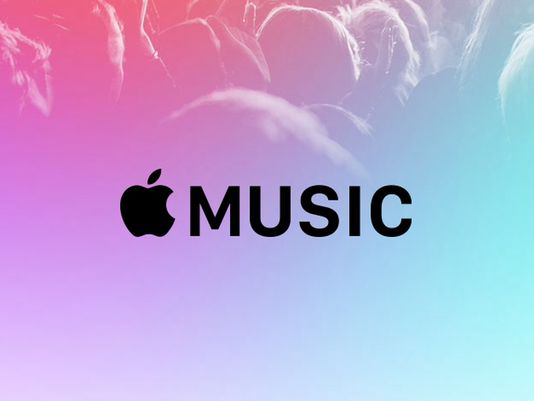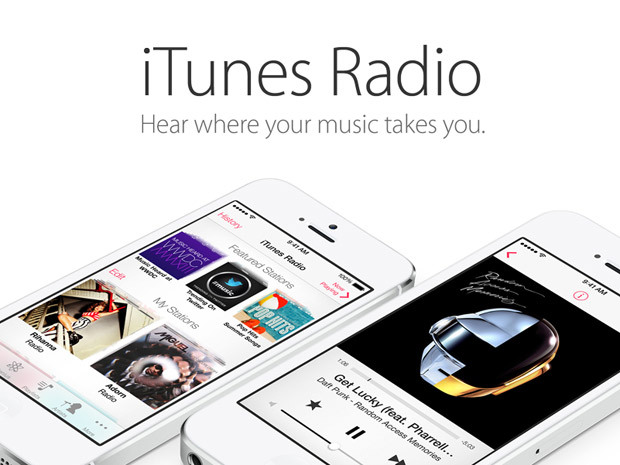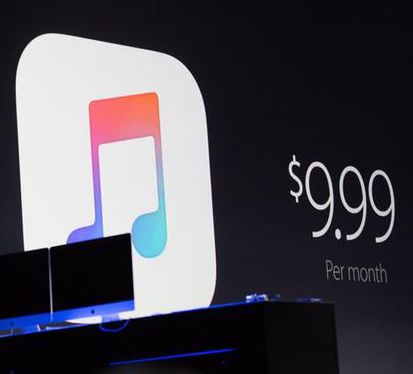 Dueling Apple Music numbers were released last week. One set tells a mildly unfavorable story for the much-hyped streaming service, the other doesn’t appear to be good or bad – more like okay. MusicWatch was first out of the gate. It reported that while 77% of iOS users were aware of the Apple Music service, only 11% claimed to be currently using it. The data goes on to reveal that nearly 48% of those that tried Apple Music are no longer using the service.
Dueling Apple Music numbers were released last week. One set tells a mildly unfavorable story for the much-hyped streaming service, the other doesn’t appear to be good or bad – more like okay. MusicWatch was first out of the gate. It reported that while 77% of iOS users were aware of the Apple Music service, only 11% claimed to be currently using it. The data goes on to reveal that nearly 48% of those that tried Apple Music are no longer using the service.
This survey data seems to match up pretty well with analysis by Anna Washenko and Brad Hill from RAIN News. Washenko cited a Consumer Intelligence Research Partners study that showed “97 million iPhones were in use in the U.S. as of the end of June 2015.” Hill tied this together with earlier comments from Apple’s Eddie Cue that 11 million listeners signed up for the Apple Music trial period. That would be 11.3% of U.S. iOS users.
It’s a pretty neat alignment except for one thing. Apple Music is a global service in 100 countries and the 11 million figure didn’t specify U.S. or global. Given that Spotify reports global numbers and Apple has every incentive to show the biggest number possible, we have to assume it is a global number. That would suggest either very poor adoption outside the U.S. or an even lower rate of iOS users opting for the free trial.
Apple Disputes the Numbers – doesn’t match iTunes Radio
 Apple released it’s own numbers Wednesday, but only to contend that the 48% abandonment rate was incorrect. Company internal data suggests that only 21% of the early sign-ups had stopped using the Apple Music service. It is not clear whether they are claiming 79% of the 11 million have stuck around which would yield 8.7 million active trial users or if 13.9 million signed up and 11 million (79%) have stayed with the service. Either way it seems like net growth for music streaming.
Apple released it’s own numbers Wednesday, but only to contend that the 48% abandonment rate was incorrect. Company internal data suggests that only 21% of the early sign-ups had stopped using the Apple Music service. It is not clear whether they are claiming 79% of the 11 million have stuck around which would yield 8.7 million active trial users or if 13.9 million signed up and 11 million (79%) have stayed with the service. Either way it seems like net growth for music streaming.
There was a similar announcement by Apple about month after it launched iTunes Radio in September 2013. As of late October 2013, Apple claimed 20 million users had played one billion songs. By that measure, Apple Music looks about half as successful as iTunes Radio in customer acquisition. Few people believed that 20 million consumers were still using iTunes Radio as of June 2015, but logic would expect most of them to at least try the Apple Music service. Then again, iTunes radio had no subscription option. Users were explicitly opting for an ad-supported, “free” listening experience and the thought of paying even three months down the line could be a non-starter.
Mark Mulligan of Music Industry Blog and MiDIA Research also points out that 11 million is about 10% of the number of consumers that purchased music on iTunes in 2014. The data appear to show that some number less than 10% of iOS users logged on to try the free version of Apple Music. Does this represent a bad performance?
Mulligan also notes that Apple Music is likely to exit 2015 with the second largest music subscriber base after only six months in operation. Even if it holds onto half of the trial users and experiences subscriber growth that exceeds churn, it will be solidly in second to Spotify in terms of global subscribers. That may fall short of Apple’s goal, but it will mark an accomplishment in a few months what other services have been unable to achieve over a decade.
What Apple Music Means to Streaming
The XAPPmedia analysis by Pat Higbie reported in Adotas is that Apple Music will be more successful enlisting new users of music streaming than raiding users from other existing services. The MusicWatch data seems to confirm this. Only 28 percent of Spotify Premium customers had tried Apple Music and a smaller percentage will certainly make the switch.
When it comes to “free” streaming listeners the effect has been even more muted. Only 11% of Spotify Free and 6% of Pandora listeners reported using Apple Music. This is important for two reasons. First, Apple enlisted support from the music labels by arguing that its new service would successfully convert current ad-supported listeners on other services to subscribers. Simply switching subscribers from one service to another does little for music industry revenue.
Second, between 89% and 95% of all music streaming users opt for ad-supported, “free” listening. That is the fat part of the market and represents both access to future subscribers as well as an audience that can drive advertising revenue. More important for the labels, ad-supported listeners represent the audience reach required to market new music and maximize exposure. Although it goes unmentioned in the marketing materials, Apple Music is providing an ad-supported listening experience. However, it’s unclear whether the masses are responding or even know that the service is available.
Fighting Over a Niche Segment
 iTunes Radio was supposed to be a Pandora killer when it launched in 2013. It wasn’t. Apple Music was touted as a Spotify killer. The data from MusicWatch and from Apple itself confirm it is not killing anyone yet. What is it then? Apple Music represents an intensifying battle for the 5-11% of consumers willing to pay $120 annually for access to music on their smartphones. This income will be important to some audio publishers and record labels but will account for less than half of the total streaming revenue for the industry.
iTunes Radio was supposed to be a Pandora killer when it launched in 2013. It wasn’t. Apple Music was touted as a Spotify killer. The data from MusicWatch and from Apple itself confirm it is not killing anyone yet. What is it then? Apple Music represents an intensifying battle for the 5-11% of consumers willing to pay $120 annually for access to music on their smartphones. This income will be important to some audio publishers and record labels but will account for less than half of the total streaming revenue for the industry.
Ad-supported listening will continue to generate the majority of industry streaming revenue and artist payouts. This is where the mass audience is and advertisers are increasingly eager for access. It is also where artists need to be in order to maximize their fan base. The battle for subscribers may be ratcheting up, but expect this period to be its high water mark. Spotify and others have demonstrated that a robust subscriber base is best supported by an even more robust ad-supported listener base. The approach benefits consumers, artists, labels and the audio publishers.
Related Posts
AdExchanger: XAPPmedia’s Pat Higbie & Pandora’s Tim Westergren on Apple Music
What Wasn’t Said at the Apple Music Debut
Apple Accepts the Worst Deal in Music Streaming – thanks to Taylor Swift
